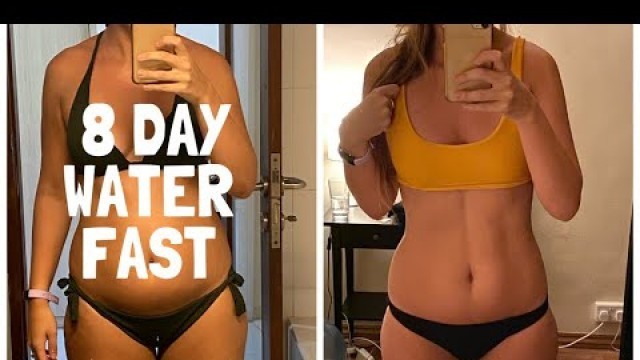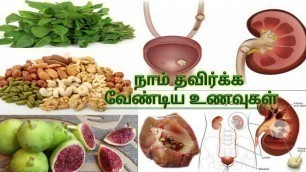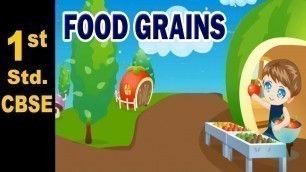

'8 Days Water Fasting (NO FOOD FOR 8 DAYS!!) GET FREE E-BOOK: https://www.allasyummyfood.com/recipes ***DISCLAIMER*** DO NOT DO DO THIS IF - You are under 18 - You suffer from bulimia, anorexia or any unhealthy eating patterns - If you have serious health complications - If you never fasted before - If you are alone Hey everyone! I wanted to share my experience with fasting! I am not promoting it, just sharing what I did. Please talk to the doctors if you want to fast and educate yourself a lot before attempting to do any fasts. Water fasting is popular in the wellness world, but you should approach it with caution. While it may help you lose weight in the short-term, it’s not a sustainable approach to health or weight loss, and it puts you at risk for health complications. Many cultures/religions include some fasting. The main reason for fasting is the same in all of these beliefs: Physical, mental, emotional, and spiritual healing; resetting. Fasting is nature’s way of allowing your body to heal itself, and that rest is essential to the success of the process. When you stop eating (start fasting) all the energy that has been used to gain energy from food is now being used for flushing toxins out of the system and boost the natural healing mechanism of the body. How to Water Fast Water fasting is simple, but that doesn’t mean it’s easy. During a water fast, you can’t consume anything but water. If you’ve never done a water fast before, you might want to prepare your body by gradually decreasing your calorie consumption for a few days leading up to your fast. If you do engage in a water fast, try to resist the urge to eat a big meal. After restricting yourself from calories for an extended period of time, consuming large amounts of food can cause digestive discomfort or nausea. At worst (though it’s unlikely), you are at risk for refeeding syndrome, a potentially fatal condition that involves rapid metabolic changes, usually in people who are extremely malnourished. Instead, start by adding caloric beverages like milk or juice, and work your way up using snacks and small meals. By the third day post-fast, you should be able to eat normally again. How much water should I drink? The first thing to remember is that 60 – 70% of our body is WATER. So, it’s crucial that you drink enough quantity of water, which should not be less than 8 – 10 glasses daily, to support the cleansing process. Drinking not enough water is during water fasting is the problem we observe the most. The body gets dehydrated, as a result, it becomes more acidic, and the cells don’t get hydrated enough to keep the blood alkalized. Who can benefit from water fasting? Everyone can benefit from water fasting. Either you are seeking for a periodic, or you suffer from different conditions; obesity, chronic disease, autoimmune disorders, food addictions, digestive disorders, mental and physical exhaustion, etc. Benefits of water fasting: Improves Body Composition and Fitness Boosts Your Metabolism Supports Fat Loss and Ketosis Improves Cardiovascular Health Lowers Blood Pressure Decreases Blood Sugar Promotes Heart Health May Slow Aging and Enhance Longevity Decreases Inflammation Improves Cell Recycling Increases Growth Regulation Promotes a Healthy Stress Response Supports Healthier Collagen in Skin Dangers of Water Fasting Nutrient Deficiencies Any fasting protocol can put you at risk for nutrient deficiencies. By restricting calories, you are also restricting essential vitamins, minerals, fatty acids, amino acids, and electrolytes—all things your body needs to function properly. Dehydration Even though you drink water during a water fast, you can be at risk for dehydration. For most people, at least 20 percent of daily water consumption comes from the foods you eat. If you don’t increase your water intake during the fast, you will actually end up consuming much less water than usual. Hypotension Hypotension is extremely low blood pressure—the opposite of hypertension, or high blood pressure. It can cause dizziness and lightheadedness. Hyponatremia You shouldn’t exercise during a water fast because you will lose salt through perspiration and won’t be able to replace it by eating food or drinking sports beverages. Use electrolytes every day in your water. Dizziness, Fatigue, and Trouble Focusing Dizziness, fatigue, and brain fog are all symptoms of extreme calorie restriction. When you don’t consume the number of calories your body needs, your body will struggle to perform at an optimal level. It may become difficult to focus at work or school during a water fast. Fasting can also cause mild-to-severe headaches. Binge Eating Fasting—and dieting or restricting calories in general—often leads to binge eating. Fasting can also lead to obsessive or intrusive thoughts about food, which may cause you to binge eat when your water fast is over.'
Tags: how to , lose weight , fat loss , fatloss , fasting benefits , water fasting , how to fast , water fast , water fasting benefits , 8 days water fasting , 8 days fasting , how to do 8 days on water , water fasting diet , how to fast on water , 8 days water fast , how to fast 8 days on water , weightloss fasting , how to lose weight fasting , fasting vlog , water fasting vlog , 8 days fasting vlog , how to fast for 8 days , lose weight fasting , water fasting video , how to correctly fast on water
See also:

















comments